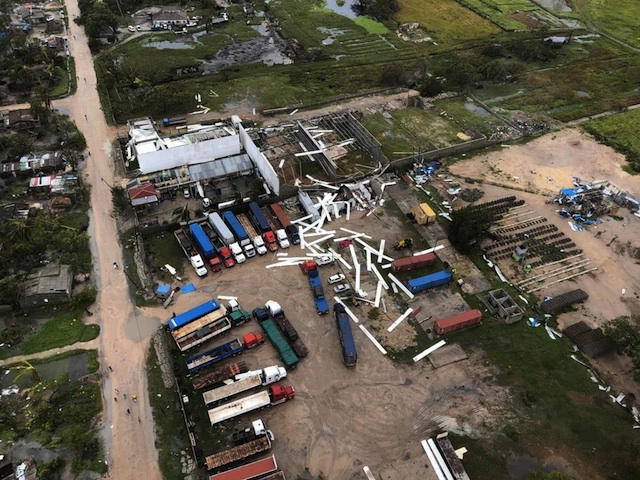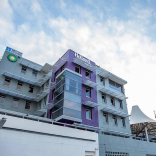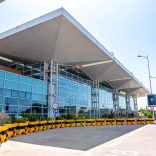Hollard International completes acquisition of Absa's insurance operations in Mozambique and ...
Businesspeople in central Mozambique call for tax moratorium, subsidised interest rates and priority in reconstruction works

Photos: A Verdade
In addition to the more than 500 dead, about one million affected and over 100,000 damaged houses, Cyclone Idai and the floods that followed it have torn apart the weakened private sector of central Mozambique.
“The private sector has asked the head of state and government for the tools to leverage their business,” Ricardo Cunhaque, chairman of the Sofala Business Council, told @Verdade.
Cunhaque, who just over a year ago explained to @Verdade how the economic crisis was affecting Sofala’s entrepreneurs who at the time had not yet recovered from the effects of the political-military crisis, began by clarifying that the private sector was not going with a begging bowl in hand, and that the initial measures announced by President Filipe Nyusi are “welcome”
However, ” we would like the head of state to enact measures more strengthening to the business sector,” he said. After all, the productive sector “is already de-capitalised, and companies will continue to be de-capitalised by this tragedy”.
Prior to his address to the nation, Nyusi met the business community in the city of Beira, Sofala, where, more than complaints, he heard concrete proposals around helping them start afresh after the tragedy.
“The private sector has asked the head of state and government to leverage their businesses. We need to find lines of financing at subsidised interest rates, affordable requirements to access money and guarantees, which will enable the business community to seek these funds to rebuild its activity,” Cunhaque said.
“We are in a month when we have to start making payments, IRPC (Corporate Income Tax) , payments on account, and we ask the government to relax the payment dates for these taxes,” he added.
“We want priority to local entrepreneurs on reconstruction”
The General State Account shows the impact of successive crises on the economy of the province of Sofala, which has not generated expected tax revenues for several years. In 2016 the revenue stood at 67.9 percent and in 2017 it dropped to 52.1 percent of that planned.
Income taxes comprise the bulk of revenue generated in Sofala, and, Cunhaque told @Verdade, “We also want the government to find ways to exempt us from the IRPC (Corporate Income Tax ) for a period of time, so that we can take that money and invest it here”.
Cunhaque, who to date has not received any of the late payments that the state has owed his companies for several years, also told @Verdade that the businesspeople had asked President Nyusi to prioritise local entrepreneurs in reconstruction work.
“With all the tragedy and with the rescue concluded, there will be reconstruction – a lot of work here in the province, and we want to prioritise local entrepreneurs for their execution. This will also be a way to finance business in Sofala,” he concluded.

By Adérito Caldeira












Leave a Reply
Be the First to Comment!
You must be logged in to post a comment.
You must be logged in to post a comment.